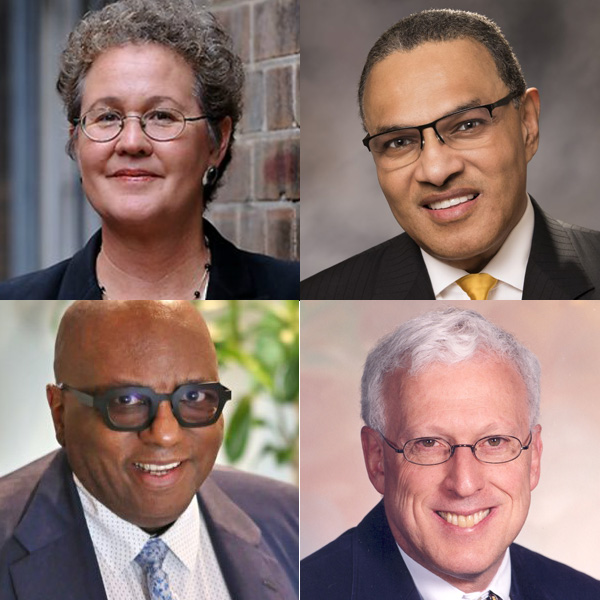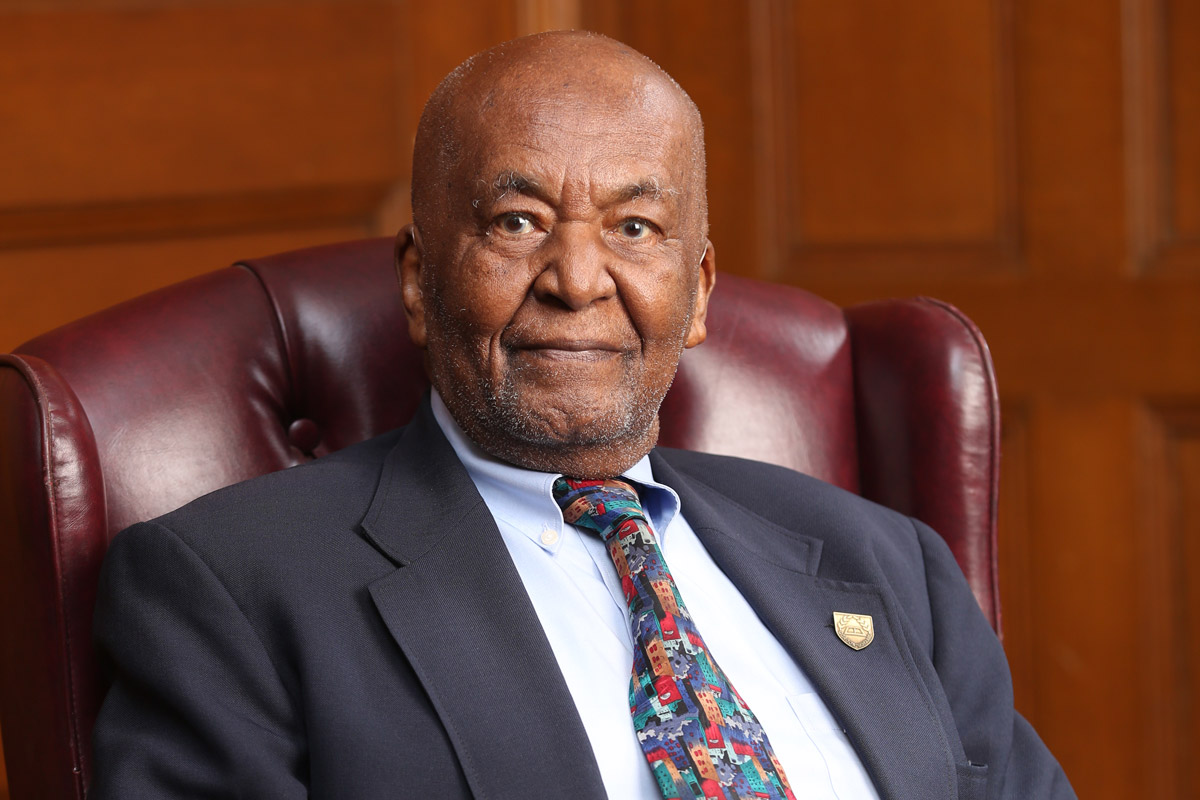“In order to provide equality of education for disadvantaged children, we must identify the children and characterize the nature of their disadvantage. [But] psycho-educational appraisal has more often been directed at establishing the fact and quantity of deficit than at evaluating its quality and nature.”
The psychologist Edmund W. Gordon, who turns 100 in June, wrote those words in 1966 — long before the emergence of America’s education standards movement and “testing industrial complex.” With the Biden administration ordering states to resume annual standardized testing of students amid widening educational inequity, those words resonate powerfully today. And on June 2nd and 3rd, at The Edmund W. Gordon Centennial Conference, a cast of speakers that reads like a Who’s Who in American education research will focus on the question that Gordon, described as “the premier Black psychologist of his generation” by the New York Times, has posed throughout his career: How to make teaching, learning and assessment processes in schools ensure the “affirmative development” of every learner, giving everyone equitable opportunities to grow?
[Click here to learn more about and register for Teachers College’s Edmund W. Gordon Centennial Conference, “Learning and Thriving Across the Lifespan: Building on the E. W. Gordon Legacy on Affirmative Development and Equitable Education for Every Learner.”]
The Gordon Centennial Conference is being organized by Teachers College, Columbia University, where Gordon (Ed.D. ’57) is the Richard March Hoe Professor of Psychology & Education Emeritus. It is the first of a series of events throughout the country this year that will honor Gordon, who helped create the federal Head Start Program, has championed “supplementary education” — a holistic approach that laid the groundwork for efforts such as the Harlem Children’s Zone — and, from 2011-13, chaired a commission of the Educational Testing Service that called for a re-envisioning of standardized testing.
[Watch Edmund Gordon discussing his vision of supplementary education in the Teachers College series “Mini Moments with Big Thinkers.”]
A cast of speakers that reads like a Who’s Who in American education research will focus on the question that Gordon, described as “the premier Black psychologist of his generation” by the New York Times, has posed throughout his career: How to make teaching, learning and assessment processes in schools ensure the “affirmative development” of every learner, giving everyone equitable opportunities to grow?
In addition to Gordon, who continues to publish and speak nearly two decades after the Times’ valedictory piece in 2003, key speakers at the conference will include:
Linda Darling-Hammond, Director of The Learning Policy Institute, leader of the Obama and Biden education policy transition teams and former Senior Research Advisor to the Smarter Balanced Assessment Consortium. Darling-Hammond, the Charles E. Ducommun Professor of Education Emeritus at Stanford University’s Graduate School of Education, will take up Gordon’s challenge to the field to “develop assessments that are actually educative” and that empower learning and educational equity.
Freeman Hrabowski, President of the University of Maryland-Baltimore County, the nation's top producer of African American undergraduates who go on to complete an M.D./Ph.D. Hrabowski will discuss how the Meyerhoff Scholars Program, which he co-founded in 1988, has become a national model in helping underrepresented minorities to pursue advanced degrees and research careers in STEM fields.
Robert Sternberg, developer of the Sternberg Test of Mental Ability (STOMA) and the triarchic theory of intelligence. Sternberg, Professor of Human Development at Cornell University, will challenge four assumptions “of causal inference” that dominate the field of human ability: that ability is genetically inherited; that correlation among a child’s abilities across unrelated fields reflect the influence of an underlying general mental ability; that “g-based” (primarily academic) abilities are causal with respect to achievements in the world; and that differences in scores on tests of abilities between socially-defined racial, ethnic, and other groups indicate inherent differences in abilities.
Michael Nettles, Senior Vice President of the Policy Evaluation & Research Center and Edmund W. Gordon Chair for Policy Evaluation and Research at ETS. Arguing that current assessment systems may have reached their limit in producing equity across population groups, Nettles will explore new opportunities created by the pause in standardized testing during the pandemic — including broader diversity among designers and developers of tests; the kinds of tests being designed; the data elicited; test delivery mechanisms; and how data are used.

TAKING UP THE CHALLENGE Among the speakers at the Gordon Centennial Conference are (clockwise from left) Stanford University's Linda Darling-Hammond, who led the Obama and Biden education transition teams; Freeman Hrabowski, President of the University of Maryland Baltimore County and co-creator of the Meyerhoff Scholars Program; Cornell University's Robert Sternberg, developer of the triarchic theory of intelligence; and Michael Nettles, the Edmund W. Gordon Chair for Policy Evaluation and Research at the Educational Testing Service.
Other speakers will address:
- Questions of fairness as machine learning (ML) is deployed in high-stakes domains, such as disease diagnosis, financial lending, or prison sentencing.
- How national frameworks in countries with high-performing early childhood education and care bolster the “affirmative development” envisioned by Gordon — and what that implies for primary and secondary education in the United States.
- A legal framework that would obligate state-level policymakers to close many “opportunity gaps” created by America’s 30-year embrace of performance standards and test-based accountability.
- Development of “opportunity-to-learn” indicators that provide data about the conditions, resources and supports underlying the persistent gaps in achievement.
- Rebuilding accountability from the bottom up to include space for project-based learning and other academic work that serves authentic purposes such as promoting the awareness and ability to participate in a sociopolitical world.
The Edmund Gordon Centennial Conference has been organized by three Teachers College faculty members who credit Gordon as one of their key mentors: Madhabi Chatterji, Professor of Measurement, Evaluation & Education and Director of TC’s Assessment and Evaluation Research Initiative (AERI); Erica N. Walker, Clifford Brewster Upton Professor of Mathematical Education, Chair of the Department of Mathematics, Science & Technology, and Director of the Institute of Urban & Minority Education (IUME), which Gordon founded in 1973; and Amy Stuart Wells, Professor of Sociology & Education and Executive Director of TC’s Reimagining Education Summer Institute and The Public Good initiatives.
The conference is sponsored by the Spencer Foundation; the William T. Grant Foundation; the William and Flora Hewlett Foundation; IUME and AERI.
